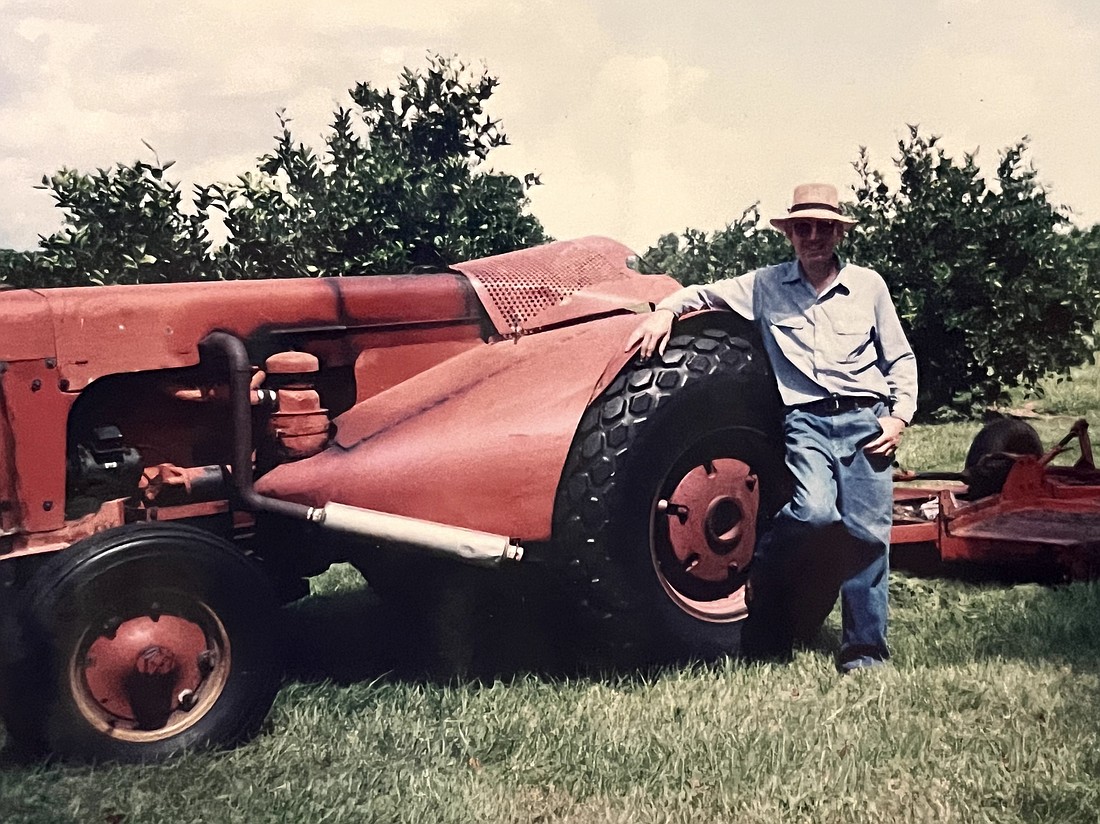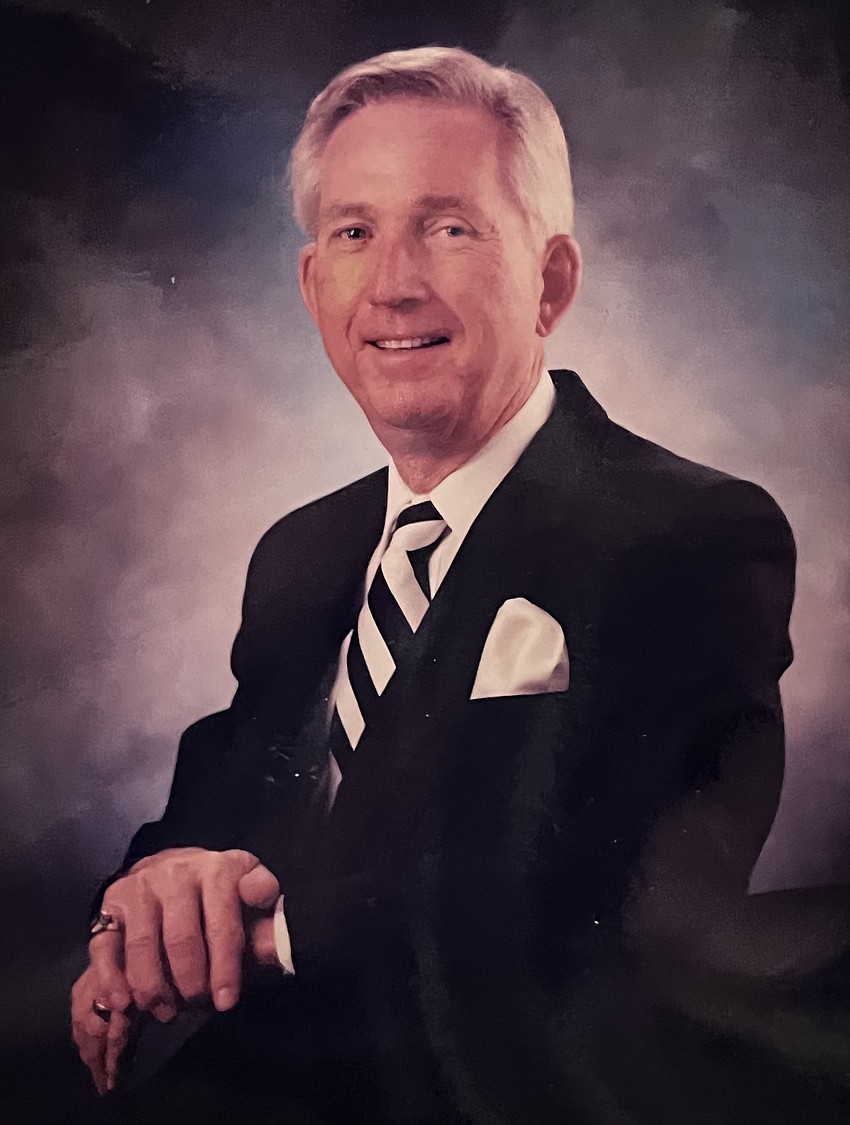- July 26, 2024
-
-
Loading

Loading

Born in Winter Garden, I have lingering memories of the early days of my life and Winter Garden. Both have radically changed. The small town is moving in new and different ways, and I'm noticeably older!
When I was around 9 years old, my mother would allow me to attend the local movie on Saturday afternoon. It was perfectly safe; the owner walked around with a long flashlight to keep the kids quiet and in their seat.
We lived out of town, and my mother had to provide the transportation to and from the movie, which was always a western starring Gene Autry, Hoot Gibson, Roy Rogers and all the rest. The movie house wasn't air-conditioned, but it made no difference, because no one's home was air-conditioned. The movies were G-rated. One could carry their Sunday School teacher with them to the movie and not be subject to any sort of correction.

I was given 15 cents for my Saturday outing. The movie admission was 9 cents. For a nickel, a bag of popcorn was purchased hot out of the machine in the lobby. I ate it one piece at a time to prolong its life. This left me with 1 cent. I worried away part of the movie time wondering what I could buy with the penny. The movie was filled with mostly kids. There was a continued piece such as "Nyoka of the Jungle," which lasted 10 weeks. Of course, there was a comedy each week like Donald Duck or The Three Stooges.
When the movie was over, I stopped by Davis Pharmacy to determine if they had anything for a penny. A postage stamp for a postcard was the one thing I could find. I didn't need a postcard. After Davis, I went to Tibbal's Drugs — the same story. Going past my aunt and uncle’s store I had to be careful. My mother usually waited for me here. If she saw me, the trip to town was shorted and my Saturday in town was over.
Saturday was a fun day, since in the morning “The Lone Ranger” was on the radio, then the matinee and afternoon movie. On Saturday night "The Grand Ole' Opry" came to us from Nashville. It was totally fun compared to all the other days. You know, jobs and chores and things.
Like all small towns in the days before WWIl, Winter Garden had two or three movie houses. Usually, kids went to the movie in the afternoon and grown folks late afternoon and night. It was not unusual for the kids and grown folks to see the movie twice. When the first movie was over the patrons just remained in their seats and saw it again. On rare occasions there would be a midnight movie for grown folks. When we received another movie house, it took all afternoon and most of the night to see both.
FARMING CULTURE
Winter Garden just before World War I and during the war was overflowing with farm and citrus workers. Most of these folks didn't have transportation, and the company would provide transportation on flatbed farm trucks to go to town to purchase groceries. These trucks were filled with farm workers and those who worked in citrus groves, man and wife and all the kids. Some had been scrubbed in a wash tub, and some had a wash-rag bath. Most grown folks had on work clothing with a new plug of Browns Mule tobacco or a new box of Three Thistle or Bruton Snuff. Lots of their time was taken standing on the sidewalk spitting on the oak trees talking to their friends. The sidewalk itself was slick enough to slip on from the tobacco juice.
Folks at this time had no telephone at home therefore couldn't gossip with friends this way. They talked with friends standing on the sidewalk up town.
We had three policemen — a chief, two regular policemen and a German Shepard named Ranger who could be mean if the situation required it. Should some sort of eruption occur in a bar, one policeman would go into the front door; Ranger went to the back and stood there with every tooth exposed. Then the show usually was over.
RIDING THE RAILROAD
Winter Garden had two railroad tracks running down the middle of town. On either side of the tracks stood giant oak trees that provided a home for birds, which painted the cars parked underneath. City folks finally got enough of the bird paint and began a campaign to rid the town of the oaks. This started the fight of the century!
The railroad tracks were busy all day and night.
Packing houses would fill up a railroad car for shipment north, and it would be pushed out of town. The ice plant would grind up giant blocks of ice and pump it into the railroad car for shipment. Engines pulling empty cars would leave them for the next day’s use.
Pounds Motor Company also had flat rail cars left at night loaded with new tractors for sale.
DOING BUSINESS
Winter Garden could be termed an ordinary small country town. It was developed around three grocery stores, a couple of drug stores and cafes. It was unusual in that it wasn't completely developed; there were empty lots in the middle of a block. The small city had every kind of business necessary to sustain life.
Downtown, Leader Department Store jutted out into the sidewalk toward the street from the Edgewater. This provided space for a black board for messages and a leaning place to talk; chalk was provided by someone. Mrs. So-and-So had fryers for sale, another announced she would sew for people, a boy solicited a lawn-mowing business, and other personal notes were added. The black board was always filled with notes, even deaths and funerals.
Someone cleaned it off weekly, and everyone started over. It was a great gathering place to see what the community was doing.
Early on, a group in town got together and decided to build a hotel since northerners were vacationing here to fish. The developers planned to build a seven-story hotel but the money ran out and they settled for a three-story Edgewater Hotel. The hotel in the early days had a wonderful dining room, and the guest rooms were top of the line!
It was then the city decided there was need for an auditorium, swimming pool and city dock on Lake Apopka. The lake was renowned for its great bass fishing.
A trailer park was developed by the city to accommodate tourists. It was a hit. The tourists pulled a small wobbly wheeled house trailer to the park filled with groceries and everything they would need for their vacation. They usually wore a pair of long johns, brought a $20 bill and didn't change either while here. This was the thought of many of the locals. The one problem for the retail milk business was the clotheslines they hung from trailer to trailer. A person running in the dark carrying bottled milk and not thinking about the clotheslines had terrible things happen — they either got caught under the chin and landed flat on their back, or they “busted” their milk.
Those of us attending Lakeview High School were taught how to swim at the municipal pool. We were transported on whatever school bus we had and changed into our swimsuits at the pool.
The property around the lake from Fisherman's Paradise (fish camp) to Oakland was vegetable farming mixed with citrus groves. The vegetable-farming business typically was smaller than citrus. Farmers started with a garden to put groceries on the table. They also had a few pigs, a couple of milk cows, a couple of mules or horses. It is said the old man farmed about five acres, hunted and fished after he secured a job for the wife driving the school bus. With Winter Garden having about four vegetable packing houses, some farmers became sizeable.
Citrus growers usually bought citrus seed by the quart and planted them in rows. Some growers planted more than they needed and sold these for some hard cash. Unfit land for citrus or vegetables had cows for sale as beef.
WAR EFFORTS
World War II brought military camps — including a large one down at the city dock and one on Avalon Road where the country club once sat. Most soldiers were great young people, and they dated the local girls. Several returned to Winter Garden to marry, and some even remained and raised families here.
My dad had a retail dairy and served milk to several camps. One day an officer brought news from the camp commander that if he continued to serve milk to the military, the milk must be pasteurized. He milked about 50 to 65 cows twice daily and was first in the county to buy electric milking machines.
My dad priced the equipment necessary — around $150,000. His entire dairy wasn't worth that much! In desperation, my mother's car back seat was removed, milk in 10-gallon cans was placed there, and she delivered it to Datson Dairy in Orlando. Workers unloaded her car, pasteurized the milk, cleaned the cans and returned the milk. She brought it back for bottling.
On most Sunday nights, I accompanied a dairy employee to a local bar with a load of milk. The military had a rule that bad things would happen if a service man came back to the tent a bit "overserved." The soldiers thought if they consumed sufficient milk this wouldn't happen. For as long as they were here, this was a regular weekly chore.
BATH POND
Bath Pond was the best small swimming lake in Florida. The owner allowed kids and adults to swim there as long as the trash was picked up and the lakeshore kept clean. Only a few boys knew of its existence in this area, and it had regular use. There were farm workers who had no indoor plumbing who used it often for bathing purposes. Bath Pond was white sand bottomed and had a few small springs that bubbled. It was a perfect delight to have the opportunity to swim there. Of course, only boys used it and without a bathing suit. Girls had to make an appointment to swim. Late high school and college years when we were in the vicinity, we would take a dip on the way home at night.
Bath Pond no longer exists. Housing developments and construction work wrecked it. It only exists today in the award-winning book “Bath Pond” and the minds of those fortunate to have the use of such a valuable asset.